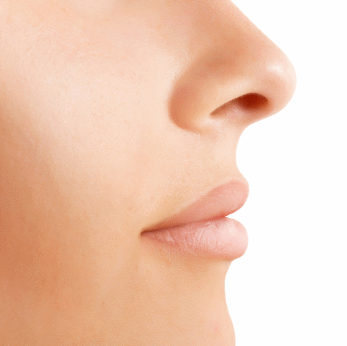Nose surgery recovery
The following information is compiled to aid you in making a complete recovery following nasal surgery
- During nose surgery recovery for the 2-3 weeks you may experience nasal discharge and nasal congestion
- This is to be expected and will gradually subside
- Depending on the type of nasal surgery you have undergone, you will need to remain off work for 1-2 weeks – please ask for advice
- If there is increasing pain, tenderness, redness or heat over the nose contact your family doctor who will contact your surgeon if needed
Anaesthetic advice
- The anaesthetic is in your system for the first 24 hrs after nasal surgery
- Therefore you must be accompanied home by a responsible adult, and have an adult with you for the remainder of the 24 hrs after surgery
- During the first 24 hours do not drink alcohol, do not drive, and do not operate machinery
- You may drink normally, and eat a light meal if you feel like eating
Nasal saline flushes
- Nasal flushes can be made by putting a teaspoon of salt and bicarbonate of soda in 500mL of tepid water
- Pour a little into the palm of your hand or sinus rinse bottle and sniff into the nose
- This will clear the nose of excessive mucus and aid healing
- Do this on each side of the nose 4-5 times a day, starting 24 hours after nasal surgery, for 14 days
Pain relief after nasal surgery
- Paracetamol or Panadeine may be taken 1-2 tablets (1g) every 4-6 hours
- Do not take more than 8 Paracetamol or Panadeine or Panadeine forte tablets in any 24 hr period
- If these tablets do not controlling your pain, check with your local doctor before trying any other medication
General advice after nose surgery
- Try to stay away from people with colds or chest infections
- These infections are spread by airborne particles
- Since the inside of your nose has not yet healed, you are more at risk of contracting infection
Blowing your nose
- Blowing your nose after nasal surgery may dislodge any healing tissue and start your nose bleeding
- Instead wipe your nose with a tissue, blow it very gently, blowing, one nostril at a time, and flush the nose with saline rinse
- When wiping your nose, use disposable tissue instead of a cotton handkerchief
- A cotton handkerchief will collect bacteria and increase the risk of you contracting infection as the handkerchief comes into contact with healing nasal lining as you wipe your nose
After cosmetic nasal surgery
- A knock to your nose may harm the cosmetic effect achieved following surgery
- Avoid wearing glasses for around 6 weeks as the pressure from glasses may leave indentation on the nose
- Try to sleep face up to avoid putting pressure on the nose
- For 1-2 weeks after nasal surgery, try to sleep with your head resting on 2-3 pillows
- This will help to prevent your nose from swelling, and improve drainage from the nose
To reduce the risk of a nose bleed
To reduce the risk of having a nose bleed (epistaxis), please note:
- Cold or warm drinks are recommended instead of hot drinks
- Avoid alcohol and spicy foods for a period of 48 hours after nasal surgery
- For the first week following surgery, avoid blowing your nose forcefully
- Avoid undertaking strenuous activities (e.g. lifting heavy items or playing sport) for a period of 1-2 weeks
- Do not take Aspirin or non-steroidal pain medication to relieve the pain as these affect the clotting agents in the blood and increase the risk of bleeding
In the event of a nose bleed
- Sit up and forwards, squeeze the soft part of the nose
- If the bleeding does not stop after 15 minutes contact the hospital, your local doctor or go to the nearest Emergency Department
Smoke and dust
- Where possible try to avoid smoky or dusty atmospheres for a period of 1-2 weeks
- Smoky or dusty atmospheres will irritate the inside of the nose and increase the risk of contracting infection
- If you are a person who smokes, do not to smoke after surgery
- Smoking will increase the risk of you having a nose bleed
- Nicotine affects the blood supply to the nose and this may dislodge any healing tissue in your nose or prevent healing from taking place
- Many nose and sinus problems are caused by smoking, therefore the effect of surgery will be limited if you continue harming your nose afterwards




